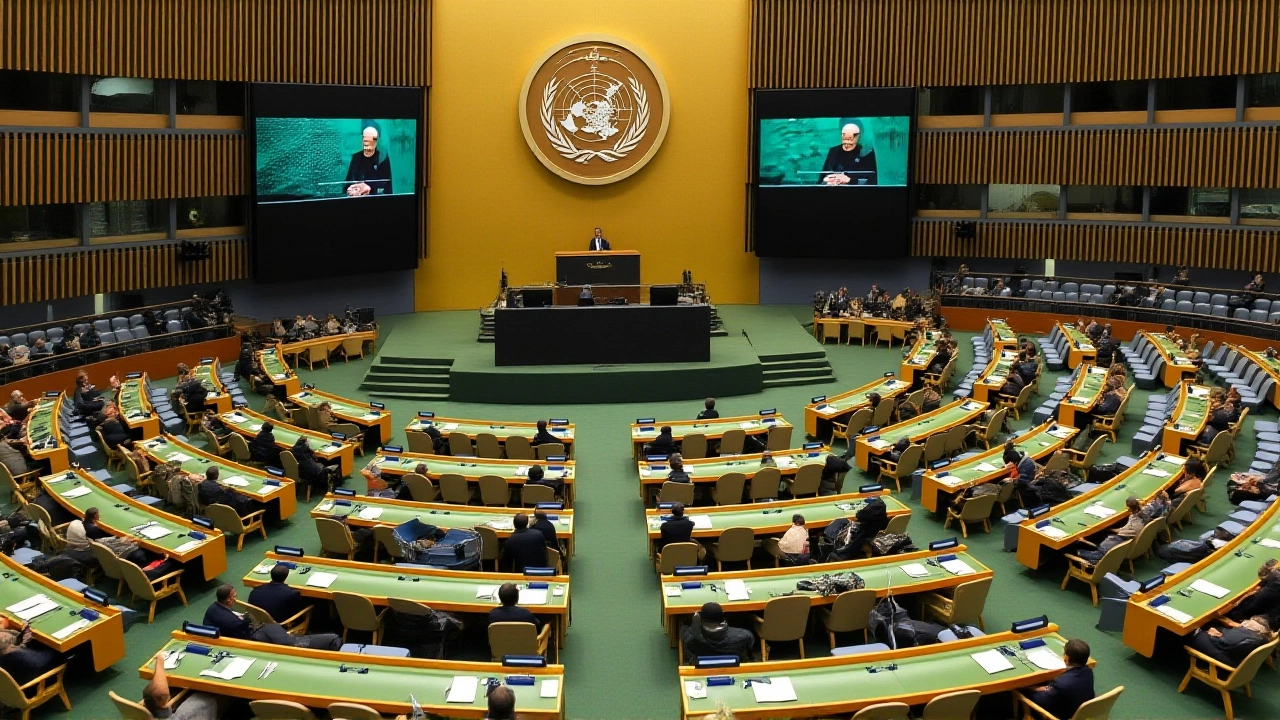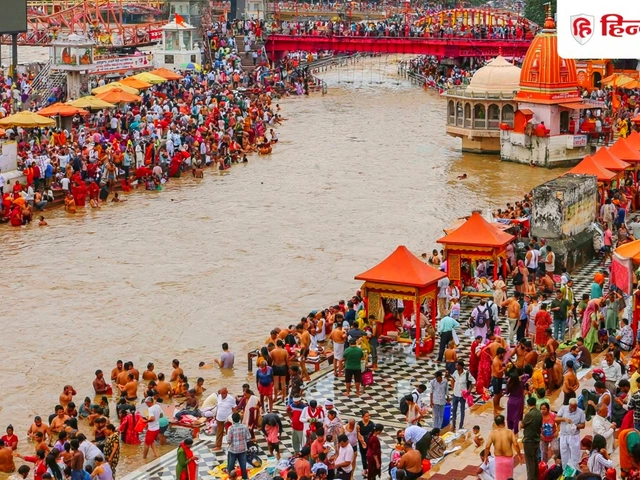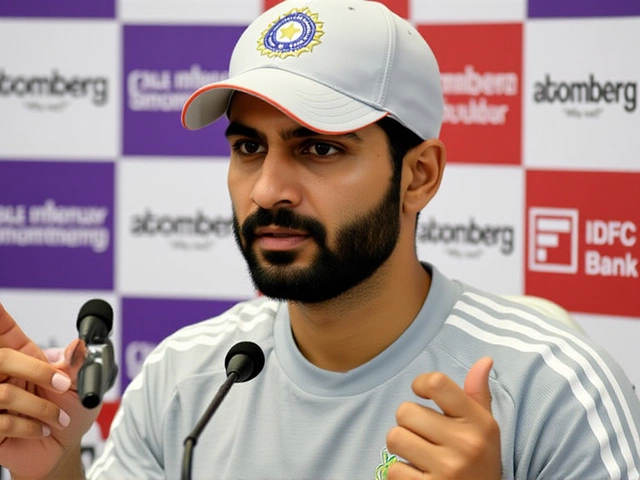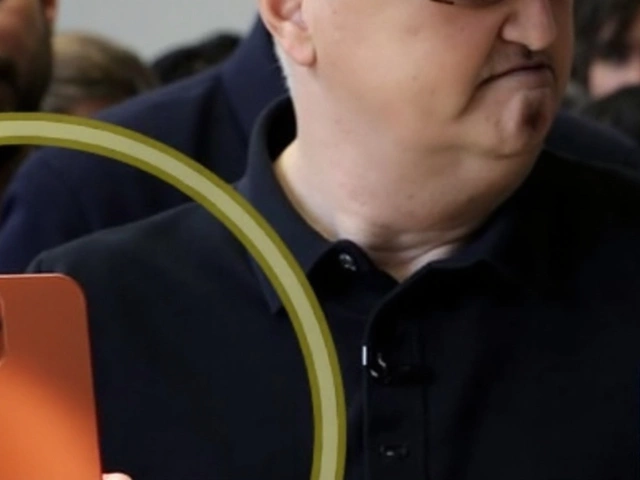The Indian national flag snapped proudly into place at the New York City stakeout of the United Nations Security Council on January 5, 2021 — not just as a symbolic gesture, but as a declaration. India had returned to the world’s most powerful diplomatic table, beginning its eighth two-year term as a non-permanent member. The ceremony, led by TS Tirumurti, India’s Permanent Representative to the United Nations, drew quiet applause from diplomats and a few raised cameras. No fireworks. No fanfare. Just the quiet weight of history. And the unmistakable sense that this wasn’t just another term — it was a stepping stone.
A Legacy Rekindled
India’s presence on the United Nations Security Council isn’t new. It’s woven into the UN’s fabric. As one of the original signatories of the Declaration by United Nations on January 1, 1942, and a key participant in the 1945 San Francisco conference that birthed the UN, India helped build the institution it now seeks to reform. Since then, it has served 16 cumulative years across eight non-permanent terms — longer than any other non-permanent member. The last time India held a seat? 2011 to 2012. Nine years later, the return felt like a homecoming."This is a proud moment for my country," Tirumurti said, standing beneath the newly raised tricolor. He thanked outgoing members — Belgium, Dominican Republic, Germany, Indonesia, and South Africa — for their stewardship. Then he turned to the newcomers: Ireland, Kenya, Mexico, and Norway. "We begin our journey together," he said. The words were diplomatic. But the subtext? India isn’t here to just sit. It’s here to lead.
Leadership in Action
India didn’t wait to make its mark. In August 2021, it assumed the rotating presidency of the Security Council — its first since 2011. By December 2022, it held the chair again. During those months, India steered discussions on counter-terrorism in the Sahel, maritime security in the Indian Ocean, and the protection of peacekeepers in conflict zones. It pushed for greater African representation in UN peacekeeping missions, a move that earned praise from dozens of Global South nations.What set India apart wasn’t just its agenda — it was its tone. Unlike some permanent members who treat the Council like a boardroom, India framed debates around equity, transparency, and collective security. When the Council debated sanctions on Mali, India urged a focus on humanitarian access, not just military pressure. When terrorism in Kashmir came up, India made sure the discussion stayed grounded in facts, not politics. "We don’t just want a seat," a senior Indian diplomat told ANI. "We want to change how the seat is used."
The Permanent Dream
Behind every vote, every statement, every flag-raising lies a longer game: permanent membership. India is part of the G4 — a coalition with Brazil, Germany, and Japan — all pushing to break the 1945 power structure that still dominates the Council. The U.S., U.K., France, and Russia have all publicly backed G4 ambitions. Former U.S. President Barack Obama said it plainly during a 2015 visit to Delhi: "India deserves a permanent seat on the Security Council."But here’s the twist: China remains the wildcard. While it hasn’t outright rejected India’s bid, it has quietly blocked consensus, often tying its support to broader reforms — and sometimes linking it to Pakistan’s position. That’s the diplomatic tightrope. India’s 2021-2022 term was, in many ways, a test run. Did the world see India as a responsible stakeholder? The answer, from most capitals, was yes.
What Comes Next?
India has already filed its candidacy for the 2028-2029 term — a move that would mark its ninth non-permanent seat. If elected, it would be the first country to serve nine terms. But the real prize? A permanent seat with veto power. The UN’s expansion process is glacial. The last change to the Council’s structure was in 1965, when two non-permanent seats were added. Since then, reform proposals have stalled — often due to regional rivalries and geopolitical calculations.Still, momentum is building. In 2023, over 120 UN member states signed a joint statement supporting Security Council reform. The African Union, which India has deeply engaged with on peacekeeping and trade, has also endorsed G4 bids. And with India’s economy projected to be the world’s third-largest by 2030, its diplomatic heft is no longer negotiable — it’s inevitable.
So when the flag went up in New York on January 5, 2021, it wasn’t just about two years. It was about a century. About a nation that helped found the UN, then spent decades waiting for its place at the head of the table. India didn’t just show up. It reminded everyone why it belongs there.
Frequently Asked Questions
How many times has India served on the UN Security Council?
India has served eight non-permanent terms on the UN Security Council, accumulating 16 years of membership since 1950. Its terms spanned 1950–1951, 1967–1968, 1972–1973, 1977–1978, 1984–1985, 1991–1992, 2011–2012, and 2021–2022. It is currently bidding for a ninth term in 2028–2029.
What were India’s key priorities during its 2021–2022 UNSC term?
India focused on maritime security in the Indo-Pacific, reforming peacekeeping operations, combating terrorism — especially cross-border threats — and amplifying African concerns in global security discussions. It also pushed for greater transparency in sanctions regimes and advocated for the protection of civilian populations in conflict zones.
Why does China oppose India’s bid for a permanent UNSC seat?
China has not formally rejected India’s bid, but it has consistently blocked consensus on Security Council expansion, often linking it to broader structural reforms or Pakistan’s position. Analysts believe Beijing fears diluting its influence and worries that India’s permanent seat could shift the geopolitical balance in Asia — particularly given the two countries’ longstanding border tensions.
Which countries support India’s permanent UNSC membership?
The United States, United Kingdom, France, and Russia have all publicly supported India’s bid. Former U.S. President Barack Obama explicitly endorsed it in 2015. The African Union, the European Union, and over 120 UN member states have also backed G4 reform proposals. This broad coalition makes India’s case among the strongest in UN history.
What’s the G4, and why does it matter?
The G4 is a coalition of Brazil, Germany, India, and Japan — four major economies and UN contributors seeking permanent Security Council seats. They argue that the current structure is outdated and unrepresentative. By banding together, they amplify their diplomatic weight, though they face resistance from regional rivals like Pakistan (opposing India) and Italy (opposing Germany).
Has India ever held the presidency of the UNSC?
Yes. India presided over the Security Council in August 2021 and again in December 2022 during its 2021–2022 term. It was only the third time in its history that India held the presidency twice in one term — underscoring its active, influential role. During these presidencies, India hosted high-level debates on terrorism and maritime security, with participation from over 80 countries.





